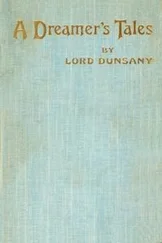SMITH: I should very much indeed.
E. L.: Well it was all due to a most annoying mistake. A really incredible mistake. And yet it actually happened. It was a long time ago, before people had got really used to wireless. And I was very much interested in wireless. Very much indeed. And to make a long story short, they thought me mad.
SMITH: Good gracious! What an extraordinary thing.
E. L.: Well, I trust I don’t look inclined that way at all.
SMITH: Certainly not.
E. L.: Because I should be very sorry to alarm you in any way if I did.
SMITH: No, of course not.
E. L.: Well that’s what they thought. It wasn’t only that I was interested in wireless, because they would have had to have shut up half the world by now if that had been the only thing that puzzled them. No, what puzzled them quite as much, or even more, was that I happen to have a wireless brain.
SMITH: A wireless brain?
E. L.: Yes. Or perhaps I should have said a wireless ear. But whichever it was, it was particularly sensitive. Now, to believe that a little wooden box with us here can hear music in Warsaw, is quite a strain on one’s credulity. But we know it can. It doesn’t seem to me nearly as odd that that far more delicate instrument, the human brain, can do it. Does it to you?
SMITH: Well, no. No, certainly not. It doesn’t, does it?
E. L.: No; because we know now that those sounds are ringing all over the ether; and, as they can be picked up, it seems to me (doesn’t it to you?) that the more sensitive the instrument, the better chance it should have of getting hold of all these sounds. That seems to me the reasonable way of looking at it; and, as a matter of practical experience, I found that my brain could do it.
SMITH: How extremely interesting.
E. L.: Yes, wasn’t it? And I daresay other people could do it too, if the thing were properly discussed. But this unfortunate method of dealing with the matter with prejudice, and imposing compulsory restraint on one, naturally burked the whole question.
SMITH: How very annoying for you.
E. L.: Yes, wasn’t it?
SMITH: And they really shut you up?
E. L.: Yes.
SMITH: And wouldn’t let you out?
E. L.: No.
SMITH: Dear me, dear me.
E. L.: Well, I’m out at last.
SMITH: Yes, I’m so glad. And what do you think of doing?
E. L.: Well, I naturally want to develop my wireless brain as much as possible.
SMITH: Yes, of course. What stations do you get mostly?
E. L.: Well, I don’t always know exactly what station it is, but I hear them very clearly.
SMITH: And what do you listen in to as a rule?
E. L.: Voices.
SMITH: Voices?
E. L.: Yes, just voices.
SMITH: How really very interesting.
E. L.: Yes, isn’t it?
SMITH: Really wonderfully interesting.
E. L.: Yes. I can hear one now at this very moment.
SMITH: Now can you really? Don’t let me interrupt you.
E. L.: Yes I can hear it quite clearly.
SMITH: And what station do you think?
E. L.: Ah, it isn’t from one of the ordinary stations. It’s a little god that often talks to me.
SMITH ( rather surprised ): A little god?
E. L.: Yes, in the Himalayas. Or more up in the Pamirs. I am not very strong at geography. An Oriental god, you know.
SMITH: How very interesting. I know the kind of thing. They make wonderful ornaments for a mantelpiece.
E. L.: Bloodthirsty you know.
SMITH: Oh yes, of course.
E. L.: But one can’t criticise them on that account.
SMITH: No. It’s just their Oriental way. And they can really talk? Really affect the ether, I mean?
E. L.: Oh yes.
SMITH: And you can really hear one now?
E. L.: Oh yes I can hear him quite clearly.
SMITH: Now that really is extraordinary.
E. L.: As a matter of fact he has just sent me an order.
SMITH: An order? What for?
E. L.: A command.
SMITH: Oh, I see.
E. L.: He has just commanded me to kill you.
SMITH: To kill me?
E. L.: Oh yes. They are quite bloodthirsty you know.
SMITH: Here, look here, you know.
E. L.: And they must be obeyed.
SMITH: Now, now, look here. I don’t want to have any games in a railway carriage.
E. L.: Now sit down. Because if you were to touch that communication–cord I should have to act quickly.
SMITH: I see. You are quite serious?
E. L.: Oh yes. And keen on it.
SMITH: You really mean …
E. L.: Keen as this knife.
SMITH: Oh–h–h–h. I see.
E. L.: Oh yes, they have to be obeyed.
SMITH now realises that he is dealing with a dangerous maniac .
SMITH: Yes, of course they must. But look here, you know. Wait a moment. Are you quite sure that wireless brain of yours is in good order this morning? What I mean is, are you quite sure it’s not atmospherics? You know the very best sets do sometimes.
E. L.: Not my set.
SMITH: No, no. Well, I only wondered. And then you can’t always take them at their word, those little Oriental gods I mean. They’d be very annoyed with you if you did that.
E. L.: I don’t think so.
SMITH: Oh, but they would. They start off with some little joke that they never mean anyone to take seriously. Why, I knew one quite well myself, a little squat god of jade, and he lived in the Himalayas too. He probably knew your little god quite well. And he used to say all sorts of things, but …
E. L.: One must always take this one seriously.
SMITH: No, no, no; they don’t expect it.
E. L.: This one does.
SMITH: Does he really? Now that’s very interesting. Now I tell you what we’ll do. We’ll test it. We’ll see if he really does mean to be taken seriously. You know there’s only one way to test them. You know how to do it?
E. L.: I must obey his commands without question.
SMITH: Quite so, quite so, quite so. But be sure that they are his commands. Now put that knife down and I’ll tell you how you can know.
E. L.: How?
SMITH: By waiting for him to say it three times. If he says it three times, you will know that that’s what he means. I never knew one of them to change his mind after he’d said it three times. But until he’s done that … why, jokes; not meant to be taken seriously.
E. L.: How do you know? May I ask, how do you know? How do you know?
SMITH: Why, I have a wireless brain myself.
E. L.: You have?
SMITH: Certainly. And I’ve talked with lots of those Himalayan gods. And they’re not to be taken seriously. Jokers, you know; half of them.
E. L.: Mine’s in dead earnest.
SMITH: Yes, yes, of course. But not till he really means it. Not till he’s said it three times.
E. L.: If I did not obey him he would be excessively angry.
SMITH: Oh yes. I wouldn’t have that happen for anything. Only, make quite sure what he wants.
E. L.: If I did not obey him he would wreck the world.
SMITH: Of course. And quite right too. He must insist on obedience.
E. L.: He shall have it from me.
SMITH: Now look here: you say you are sure that he means what he says: I say that those Oriental gods never mean what they say until they have said it three times. And then of course they are never wrong. Now shall we wait till we get to the next station and ask the guard which of us is right? He is sure to know.
E. L.: Certainly not. I allow none to interpret the direct commands I receive.
SMITH: Very well, very well, very well. Have it your own way. I only wanted to give your master time to be sure you had got his exact meaning.
E. L.: He needs a sacrifice. That is his meaning. I tell you that those gods live by sacrifice as we live by chops and steaks. I tell you it is meat and drink to them.
Читать дальше












